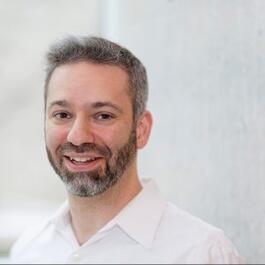
Dangerous Beeps: An Interview With Michael Schutz - Part 2
“I think doctors use a term called modifiable risk factor, I've learned, because I talk to a lot of doctors now, and so there are some things we can modify and some things that we can't. And so these alarm sounds are very much a modifiable risk factor, and we need to work together to figure out the better set of sounds to use and how to implement them. But it's definitely something that we can do to improve, because I hope that when the time comes and I'm spending time in a hospital, or my parents are in the hospital, or people I care about, these kinds of things are in a better state. Because there's no technical reason we have to be subject to this so-called ‘beeping hellscape.’” -- Dr. Michael Schutz This week we continue my interview with Associate Professor and MAPLE Lab director Dr. Michael Schutz as we talk about making a better hospital beep, the importance of turning scientific discovery into progress, and MAPLE Lab’s latest experiments on giving sounds more "pop". As always, if you have any questions for my guest, you’re welcome to reach out through the links in the show notes. If you have questions for me, just visit www.audiobrandingpodcast.com where you’ll find all sorts of ways to get in touch. Plus, subscribing to the newsletter (on the www.audiobrandingpodcast.com web page) will let you know when the new podcasts are available. The Structure of Sound We start the second half of the interview with a closer look at hospital alerts, how many more of them there are today, and why Dr. Schutz doesn’t see that trend changing anytime soon. “If we think about the whole device landscape in hospitals as sounds being an auditory interface,” he explains, “then the question becomes what's the best way to structure the sound, not so that they're most alarming, but so that they're the most communicative.'" All Over the World Dr. Schutz explains the challenge and importance of turning scientific discoveries into genuine progress, and how even something as seemingly simple as updating the sound of hospital alerts can have far-reaching results. "Thinking a little bit more about how we can improve them with sound will have huge benefits,” he says, “because hospitals all over the world have many of these devices, and the number of devices is only increasing. So even a small change in the improvement in these can have a major impact on human health." The Bells and Whistles "I think the language itself that we talk about the frills is revealing,” Dr. Schutz tells us., “If we're talking about the things that are nice but not necessary, the literal term is bells and whistles: we're talking about the things that produce sound." We talk about how easy it is to overlook sound itself even while trying to improve the soundscape, and his lab's latest research on innovative ways to make important auditory alerts stand out from the background noise without having to make them louder. Episode SummaryWhy hospital beeps are getting worseTurning discoveries into reform and progressHow subtle changes can create a major impactThe overlooked importance of sound Connect with Dr. Michael Schutz: Website: www.michaelschutz.net MAPLE Lab: www.maplelab.net “Death By Beep” on TEDx Talks: https://youtu.be/Ap8geRll6F0/ Dr...
From "Audio Branding"




Comments
Add comment Feedback